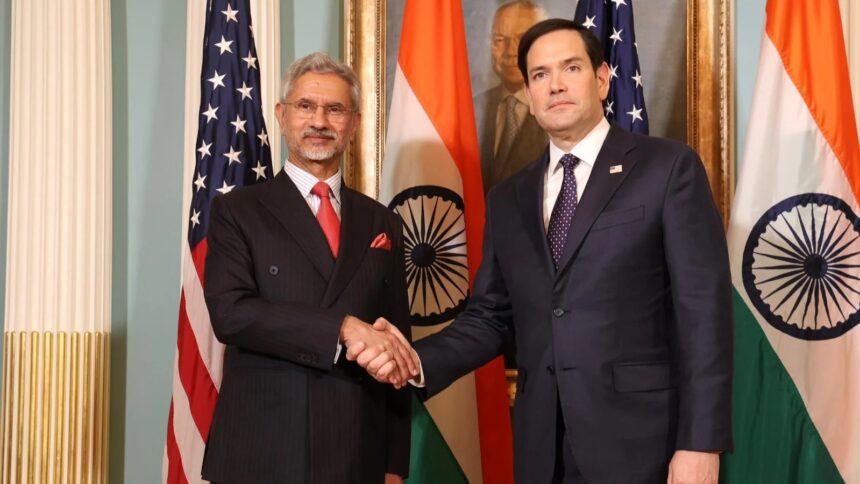Hours after India retaliated a series of drone and missile attacks by Pakistan on Friday night, External Affairs Minister S Jaishankar, in a conversation with US Secretary of State Marco Rubio, highlighted that New Delhi’s approach has always been “measured and responsible”
“Had a conversation with US @SecRubio this morning. India’s approach has always been measured and responsible and remains so,” the Union Minister said on X.
Earlier in the day, Rubio also spoke with Pakistan’s Army Chief General Asim Munir and urged both Pakistan and India to find ways to de-escalate, a US Department Of State spokesperson.
Rubio also offered US assistance in starting constructive talks in order to avoid future conflicts, the spokesperson said.
On Saturday morning, the Centre, underlined that Pakistan’s actions overnight were “escalatory” and “provocative” and that Pakistan’s military attempted air intrusions at more than 26 locations from Srinagar to Nalia, which the Indian military was able to “neutralise”.
Foreign Secretary Vikram Misri, Colonel Sofiya Qureshi and Wing Commander Vyomika Singh were addressing the briefing. They also said that Pakistan’s military has been observed to be “moving their troops into forward areas”, indicating offensive intent to further escalate the situation.
Wing Commander Singh and Col Qureshi said that Pakistan employed drones, long-range weapons, loitering munitions and fighter aircraft to target civilian areas and military infrastructure all along the western border.
India, on Saturday morning, as Pakistan fired a wave of drones and missiles at targets in and Kashmir and Punjab. The Indian Army, via a statement, said that multiple Pakistani drones were intercepted over Amritsar around 5 am and declared that it would “thwart enemy designs”.
Across northern India, explosions rattled cities through the early morning hours. In Jammu, residents reported hearing intermittent blasts as Pakistani forces attempted to strike the Air Force Station there. Rajouri came under heavy artillery fire, with shells hitting the main town area. In Pathankot, a strategically significant military hub, multiple explosions were reported at dawn. Anti-aircraft guns roared in retaliation, and the district administration imposed a high alert, ordering residents to remain indoors. The streets fell silent as people waited for an all-clear siren.
Similar scenes unfolded in Srinagar, where blasts were heard near the airport just after 5 am, and in Baramulla and Udhampur. The Indian Army said Pakistan had launched swarms of drones for a second consecutive night, targeting military installations along India’s northern and western borders.
While Indian air defences shot down multiple drones, one armed drone crashed into a civilian area in Ferozepur, Punjab, injuring members of a family, officials said.
Late Friday, the Indian Army reported that Pakistani drones had been sighted at 26 locations, from Baramulla in Kashmir to Bhuj in Gujarat. The list included key cities such as Srinagar, Jammu, Ferozepur, Pathankot, Jaisalmer, and Barmer, underscoring the geographic spread of the threat.








